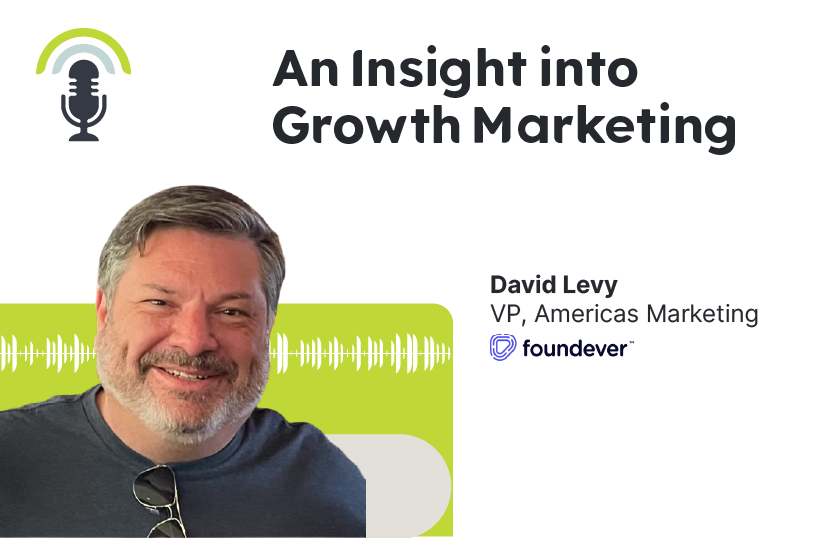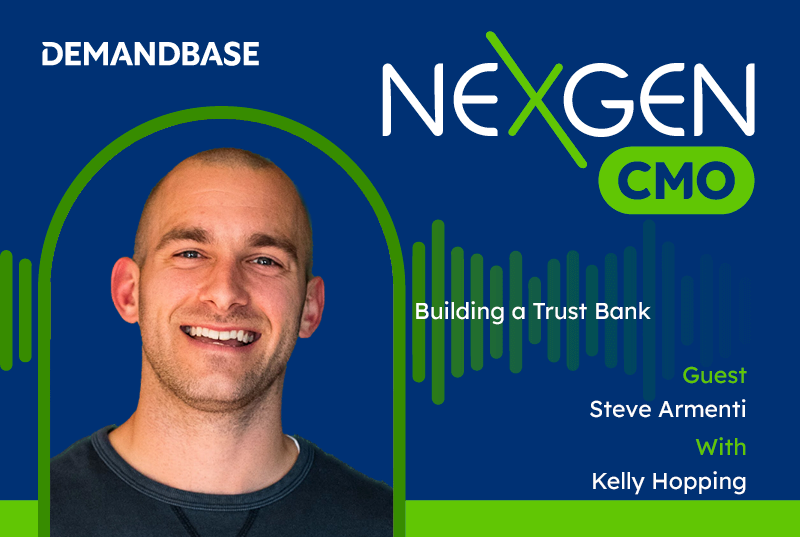
Harvesting Value – An Insight into Growth Marketing
Shownotes
In this episode of Sunny Side Up, host Joe Delamere interviews David Levy, Vice President of America’s Marketing at Foundever, about the power of growth marketing and the importance of taking a data-driven approach to the customer life cycle, from acquisition to engagement and retention to revenue generation. David discusses how personalization is key and why companies must focus on understanding customer pain points to tailor campaigns that will reach customers with the right offers in the right channels at the right moments. He talks about strategies for account-based marketing and what it takes to create an effective narrative. He also discusses generative AI, marketing strategy, customer experience, and other topics related to understanding consumer psychology. Finally, he addresses why marketers should keep the macro-context in mind while creating messaging that resonates with buyers.
About the Guest
David Levy serves as the Vice President of Americas Marketing at Foundever, a global CX leader with 170,000 associates across 45 countries, managing over 9 million daily customer interactions. In this role, David leads a diverse team focused on developing data-driven, customer-centric strategies aimed at driving demand, accelerating sales cycles, and ultimately, improving overall business growth and customer lifetime value.
Key Takeaways
- Growth marketing has evolved from a narrow focus on growth hacking to a broader, data-driven approach encompassing the entire customer lifecycle.
- It emphasizes being customer-centric, personalized, and ROI-focused.
- Marketing’s value within organizations, particularly in B2B, is recognized as a driver of growth.
- Branding creates value in the marketplace, and growth marketing extracts and converts that value into revenue.
- Successful growth marketing requires bridging the gap between brand value and targeted customer outreach.
- Managing the customer journey from awareness to conversion involves strategic brand messaging and personalized campaigns.
- Brand perception and value are essential for demand generation.
- Effective demand generation involves understanding pain points, tailoring messages to personas, and delivering relevant content.
- Account-based marketing enables personalized campaigns by targeting high-value accounts and tailoring the brand story to specific industries, companies, and job functions.
- A comprehensive brand marketing team plays a critical role in facilitating the growth marketing process.
- The team develops a well-thought-out brand strategy, including product marketing, company culture, and brand narratives.
- The brand marketing team provides growth marketers with the necessary toolkit and resources to create targeted campaigns.
- The DNA of a brand, including its vision, mission, language, and design, should remain consistent.
- Growth marketing filters the brand promise and aligns it with the recipient’s needs and preferences.
- While the overarching narrative remains the same, different chapters of the brand story resonate with different individuals.
Quote
“The power of a good well thought out brand strategy and brand marketing team is looking at all the potential storylines.”
– David Levy
Highlights from the Episode
What is the definition of growth marketing, David? Can you walk us through it?
Growth marketing, according to David, has evolved. Originally associated with growth hacking in the software industry, it now takes a data-driven approach focusing on the entire customer life cycle. It emphasizes being customer-centric, personalized, and encompassing the entire customer journey. By aligning sales and marketing efforts, organizations can achieve impactful growth.
What are the top-of-funnel initiatives that connect the brand to customer demand, contrasting them with the bottom half of the funnel that focuses on linking prospects to revenue flow, in light of the growing importance of the customer journey?
David believes that the top-of-funnel initiatives play a crucial role in connecting the brand to customer demand. He emphasizes that the brand holds significant importance in the marketplace, as it creates value. However, David acknowledges that simply having a strong brand is not enough. To extract and convert that value into revenue, he highlights the role of demand generation and growth marketing.
In David’s view, growth marketing acts as a bridge between the brand’s value in the marketplace and the tactics required to effectively reach the right audience at the right time with the right offers. He believes that managing the customer journey is a vital aspect of growth marketing. This journey begins when customers first hear about the brand and starts their research, leading them to download content and engage with lead management. It continues through the opportunity pipeline and sales enablement marketing, ultimately aiming to convert those opportunities into revenue. From David’s perspective, this entire process represents a comprehensive and interconnected journey for both customers and the internal teams supporting them. He recognizes the need for alignment within the organization to deliver a seamless customer experience throughout their interactions with the brand.
Do you have additional insights that you could share with the listeners regarding the idea that brand marketing establishes value growth, while marketing or demand generation must effectively leverage and harness that value?
David emphasizes that brand marketing is essential for establishing the brand’s promise and value proposition. However, he suggests that effectively leveraging and harnessing that value requires personalized strategies. By understanding customer pain points and tailoring the brand’s narrative to specific personas, David believes customers are more likely to engage and take action. He highlights the significance of account-based marketing, which allows for heightened personalization by targeting high-value accounts and tailoring campaigns to specific industries and job functions.
How do brand perception and consistency impact the development of a successful go-to-market strategy, given the concentrated nature of a brand?
David acknowledges the significant impact of brand perception and consistency on developing a successful go-to-market strategy, particularly in the context of a concentrated brand. Maintaining a consistent brand promise is critical for effective brand marketing. While all elements of the brand experience need to align, it’s important to identify which parts of the brand story will resonate most with the target audience. In terms of growth marketing, it serves as the intermediary layer that translates the brand promise into customer-centric language and perspective, bridging the gap between the brand and customer needs.
How does a strong brand marketing team facilitate growth marketing and what advantages does it offer?
A robust brand marketing team facilitates growth marketing by developing a comprehensive brand story across various categories. This empowers the demand generation and growth marketing team to construct compelling account-based narratives, utilizing the toolkit provided by the brand team. The advantages lie in exploring potential storylines and tailoring campaigns for specific verticals, resulting in effective growth marketing.
Is there a book, blog, newsletter, website, or video that you would recommend to our listeners?
- The Human Swarm by Mark Moffett





